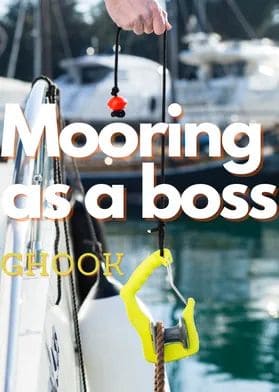Air heatersProducts found: 6
Sale of Air heaters for Boat
This section presents a catalog with prices for air heaters for organizing a heating system for a yacht . You can choose the appropriate equipment depending on the parameters of your yacht from the world's leading manufacturers of marine heating systems.
Professional advice on all issues of organizing boat heating will be given to you absolutely free by topRik experts - practicing experienced sailors. You can send your questions by email to info@toprik. com , consult with marketplace consultants for quick connection to the site or by phone - the number is indicated on the page.
The heating system occupies an important place among other systems of motor and sailing yachts of any type. It is simply irreplaceable in many areas of the planet, with the possible exception of the tropics. But even in relatively warm countries, such as the Mediterranean, hot summer gives way to the off-season, when you want more warmth inside the yacht.
Heating systems, like heating appliances, come in different brands, different types and, naturally, different performance: their choice largely depends on the characteristics of the yacht and the equipment on board. Here we will focus on the air system and its main components - air heaters .
Types of air heaters
Installing air heaters on boats, yachts and boats is an important step not only for ensuring comfort while sailing in the cool season. They also ensure the safety of the vessel, eliminating condensation, which can lead to the appearance and spread of mold, which is very difficult to remove from a yacht.
Air heaters provide fast and efficient heating within the cabin or interior of a boat. Their effectiveness depends on the type of heater. The main classification criterion is the type of fuel or energy source.
Portable heaters currently offered on the market can be divided into three types:
- autonomous air heaters running on liquid fuel;
- using the heat of a working galley stove burner equipped with a fan;
- diesel heaters that use heat from the cooling system of a stationary engine.
As a rule, they all operate in continuous recirculation mode - without a thermostat. They do not provide a ventilation function (outside air supply), since this requires an increased supply of energy, which is usually problematic for a small boat.
There are installation options when a circuit with air recirculation is made. But then it is necessary to provide for the installation of a switching damper - external/internal air intake. It must be possible to turn on the supply of fresh air. Most brands of air heaters have a “ventilation” mode. On boats this mode will be relevant.
Understanding the basic characteristics and principles of operation of electric heaters will help you navigate this issue more confidently and spend your money wiser.
It is wise to install a heater on the boat that runs on the same fuel as the boat engine.
Gasoline units are simpler and easy to maintain. Such heaters use fuel economically at low power and start up instantly, but due to the high volatility of gasoline they have a high fire hazard . A noticeable disadvantage is that the air duct grille quickly becomes clogged, since gasoline contains many different additives.
Diesel air heaters are cheaper to purchase and maintain, more durable, economical in fuel consumption at high power and less noisy during operation. Safer - diesel has less volatility and, accordingly, less explosion hazard. There are also fewer problems with the diesel heater duct grille.
Independent diesel heating systems can be easily and conveniently installed or retrofitted on boats and cars.
The heating unit is supplied with fresh air from outside or well-ventilated air from the room, which is taken into the internal combustion chamber through an air intake pipe. The resulting air is then mixed with fuel, which is supplied through a fuel metering pump, to form an air-fuel mixture. This mixture is then ignited by a glow plug, which initiates the combustion process to heat the heat exchanger. Air is then drawn from the air intake by a fan and passed through the heat exchangers and radiator fins, and the heated air is forced through the hot air outlet.
The topRik marketplace offers a wide range of air heaters from the AUTOTERM Air series , which are specially designed for quickly heating rooms where there is no built-in central heating system: yachts, boats, campers , etc.
All heaters are equipped with built-in security systems and sensors. The self-diagnosis system will automatically turn off the heater if any errors are detected (for example, low battery, heater overheating, low fuel level, air pump malfunction or flame failure), making this equipment extremely safe to operate.
Due to brushless asynchronous motors, all AUTOTERM Air models have a low noise level.
Air heaters of this series are capable of operating for a long time without interruption even in extreme environmental conditions – at air temperatures down to – 45°C.
Benefits of air heaters
The peculiarity of an autonomous air heater is its high heating efficiency , the ability to very quickly heat the air in a cold room on a boat or yacht, or any vessel. This heater for a ship can operate in automatic mode, automatically maintaining the set temperature in any room, for example, in a cabin, on a yacht or on a boat.
It is possible to program it to turn on at a certain time, which allows you to save time by not waiting for the room to warm up, the heater will turn on on its own and heat the room to the required temperature by the specified time.
The air heater can be controlled remotely.
Heaters for boats and yachts are small in size, which means there are no problems with finding a place for installation, low fuel and electricity consumption.
The heating equipment presented in the topRik marketplace is characterized by different power levels, this gives you the opportunity to choose the appropriate air heater for a boat or yacht of any size without overpaying.
Air heaters presented in this section are different energy efficient regardless of whether it operates in minimum or maximum power mode.
Air heaters for water transport have multi-stage protection in accordance with international standards, which guarantees safety of use even in an environment that is aggressive for the equipment, such as the sea.
How to choose the right one air heater
Selection of equipment for organizing a yacht heating system, in particular, of air heaters depends on what regions you intend to sail your yacht in and how extreme cold temperatures the crew faces. Depending on this you determine the power of the heater. This indicator also depends on the dimensions of the boat and the design of the air heating system.
An important selection criterion is the type of your vessel - boat, sailboat, motor yacht, catamaran, etc. The type of vessel determines the possibility of secretly installing air heaters, removing exhaust gases and laying air ducts for heating the vessel.
The choice of a heater for a large yacht or superyacht is best left to a specialist who has experience in calculating circuits for installing a ship's air heating system.
FAQ
Which heater is best for a small boat?
Air heater is the best choice for a small boat because it solves all the problems without adding weight to the yacht or requiring a complex duct system.
How safe are air heaters on board?
Air heaters , which are presented in the topRik marketplace , are made specifically for use in marine conditions, and also have appropriate degrees of protection, ensuring complete safety for the crew.
Which fuel heaters are most effective for use on yachts?
such fuel on yachts and boats heater s , which are produced taking into account their use on ships, have the maximum degree of protection against aggressive environments and are absolutely safe for the crew.
All these requirements are fully met by air heaters that we offer you in this section.
Can air heaters be used while the boat is moving?
Air The good thing about heaters is that they can provide effective heating both while the yacht is moving and while the yacht is moored.


